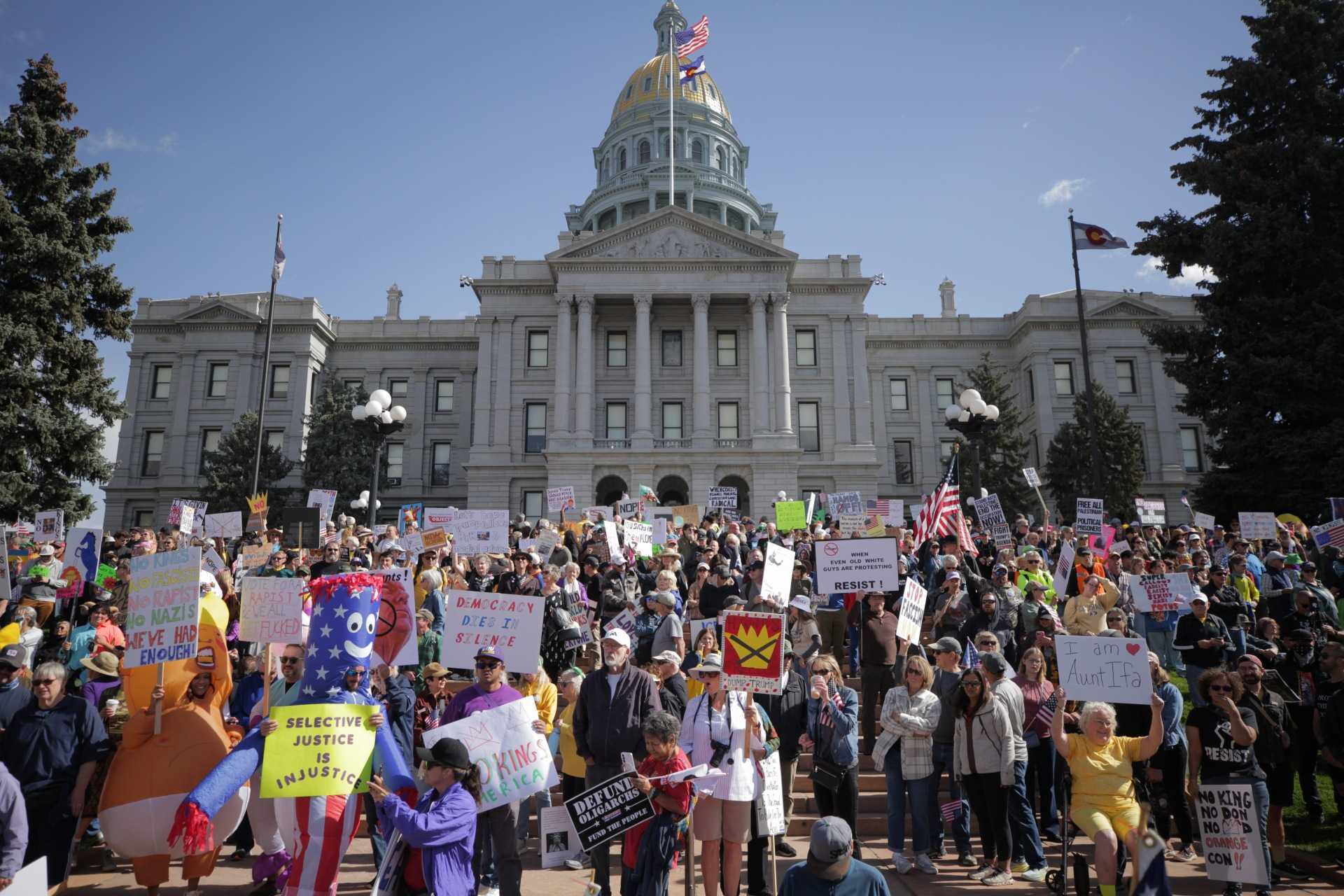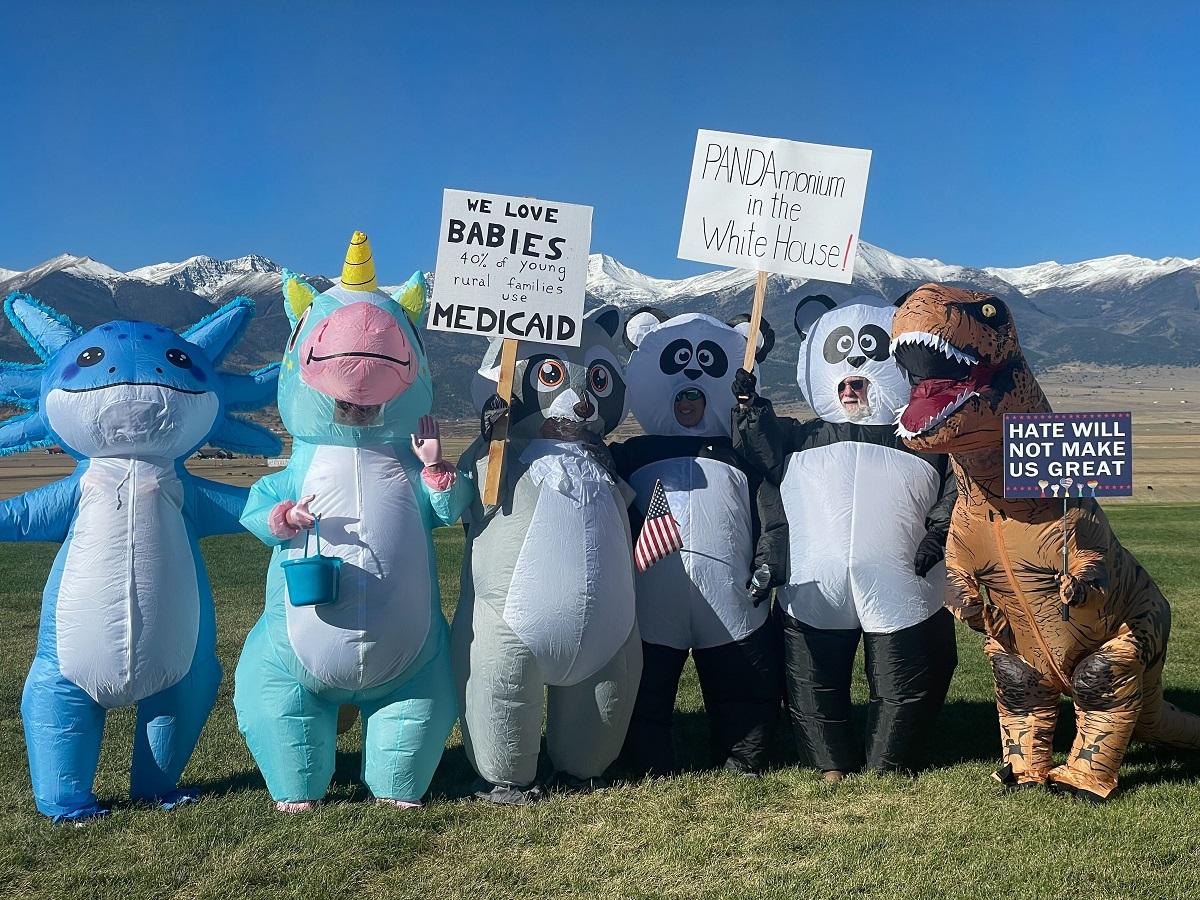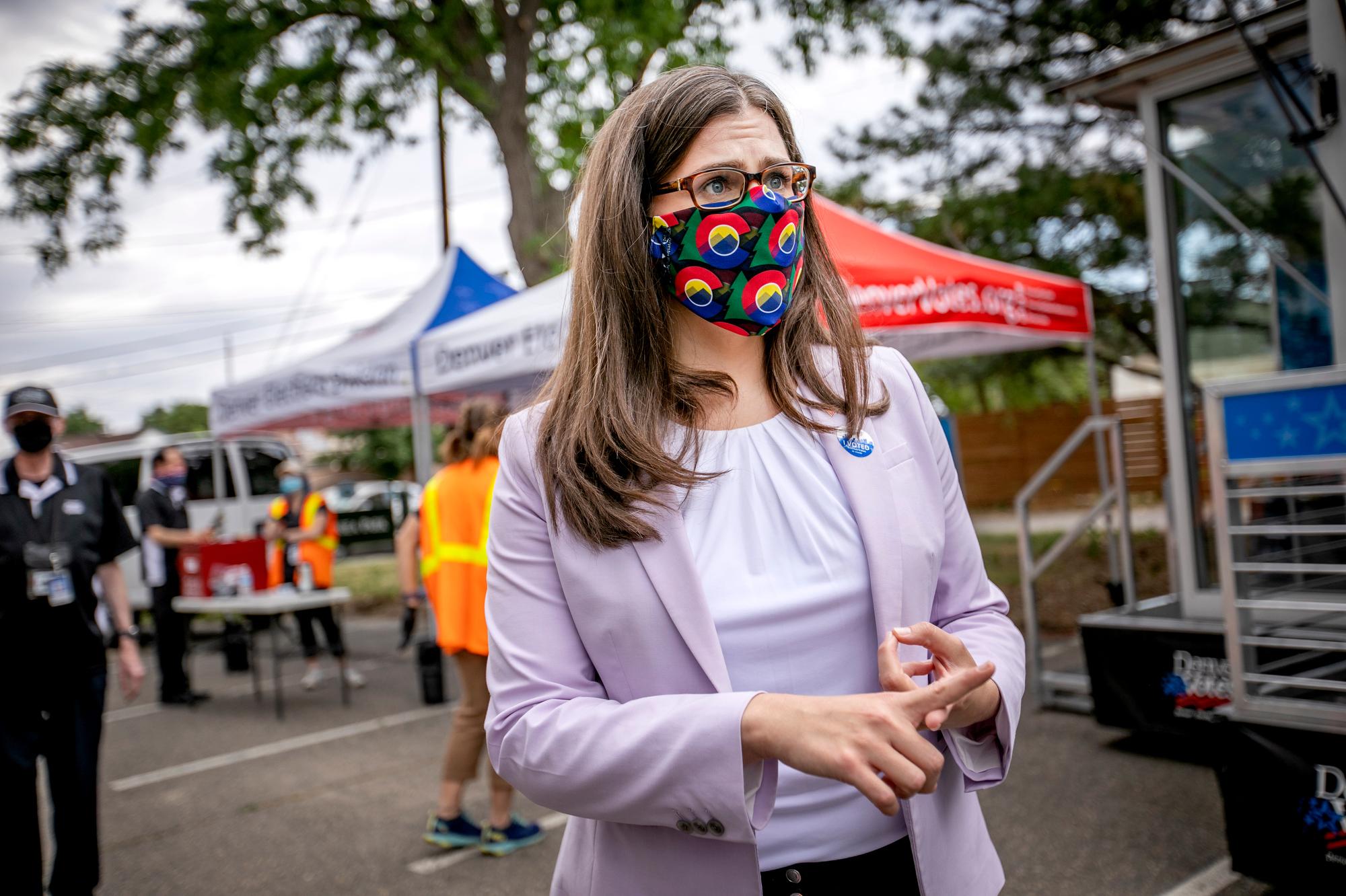
Across the political spectrum, Colorado’s elected officials say they’re facing increasingly significant threats of violence and online harassment just for doing their jobs.
Now, state lawmakers are looking for new ways to provide more security for targeted officials to keep up with the rising need, so they can feel safer going about their work.
“I think any person in the middle of a national conspiracy theory about election denialism who receives threat after threat after threat would take that seriously, which I do,” said Democratic Secretary of State Jena Griswold.
Griswold appears frequently on national cable news to speak out against false claims about the 2020 presidential election, and has taken steps to prevent the kinds of outside "audits" conducted in Arizona. She said all of this has brought a slew of threats and highlighted the need to beef up security for statewide officials in particular.
People on social media frequently call for Griswold’s death, rhetoric that has also spilled into the real world. At a meeting in Castle Rock called by the right wing group FEC United last month, Shawn Smith, a prominent proponent of election conspiracy theories, claimed he had evidence of criminal conduct by Griswold.
“And I think if you’re involved in election fraud, then you deserve to hang,” he said to loud cheers and applause in a video of the event obtained by Colorado Newsline. He added, “sometimes the old ways are the best ways.”
Smith then claimed he was not endorsing violence, but “when you put your hand on that hot stove, you get burned and you ought to see it coming.”
After that meeting, followed by numerous online threats, Griswold asked for a weekend security detail while she felt the risk was heightened, but officers were only assigned to her home for a few hours.
Colorado State Patrol is responsible for providing security to the state’s elected officials, but currently, the law only requires a full-time detail for the Governor. Lawmakers and other elected officials like Griswold can ask for short-term security, but how they respond to those requests is at the Patrol’s discretion.
“I can't say, ‘I need you here,’ and they have to show up,” Griswold said.
She calls the kinds of threats she’s getting an attack on democracy. Griswold’s office has asked for $120,000 in state funding so she can hire private security.
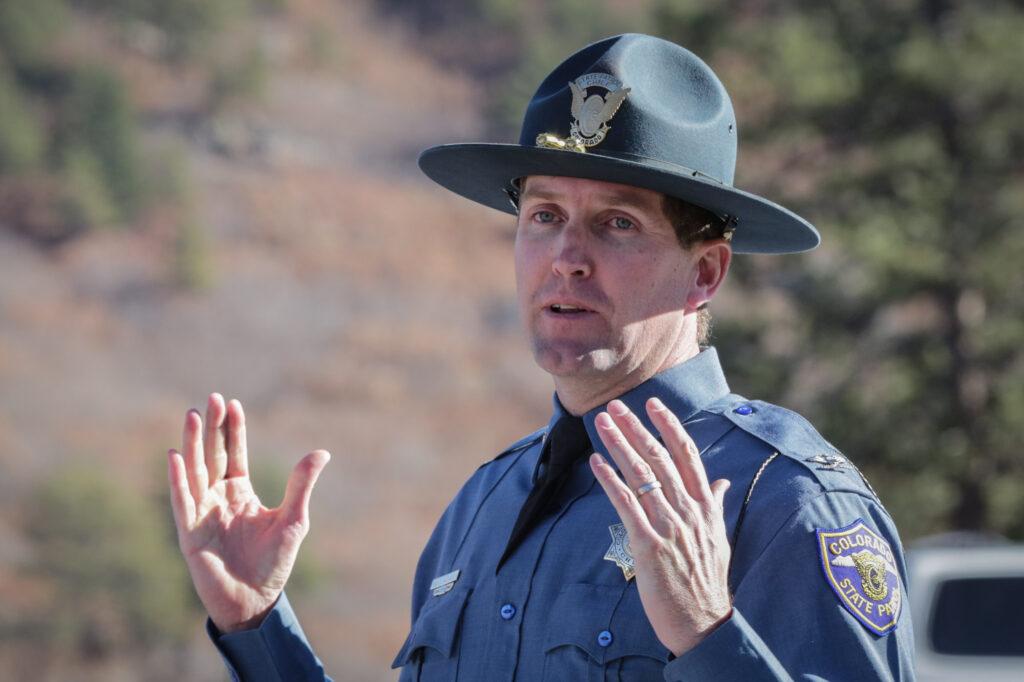
Griswold's request has been met with skepticism by some in the statehouse
Republican lawmakers say they’ve also faced threats but oppose using state money for private security, especially if security guards could end up being used outside of official state business.
Republican state Rep. Mary Bradfield notes that Secretary Griswold is running for reelection.
“And I don't know how you're going to separate her public appearances as the Secretary of State from her appearances as a candidate, because some of those get blurred,” she said.
Another option would be to expand the mission of state patrol to include ongoing security for more elected officials.
Col. Matthew Packard, chief of the Patrol, agrees that the horrible comments against officials like Griswold and others have become more frequent now than at any time in recent memory.
“There are people that are willing to say awful things, from the confines of their computer … (But) a lot of that is protected by the First Amendment, and so there’s a balance for that,” he said. “To the extent that that rhetoric has a negative impact on somebody's safety, we stand poised and ready to address that, within the confines of people's constitutional rights.”
State Patrol is asking for more money to increase security at the state capitol and surrounding buildings, recruit more officers and pay for overtime to respond to some of these credible threats.
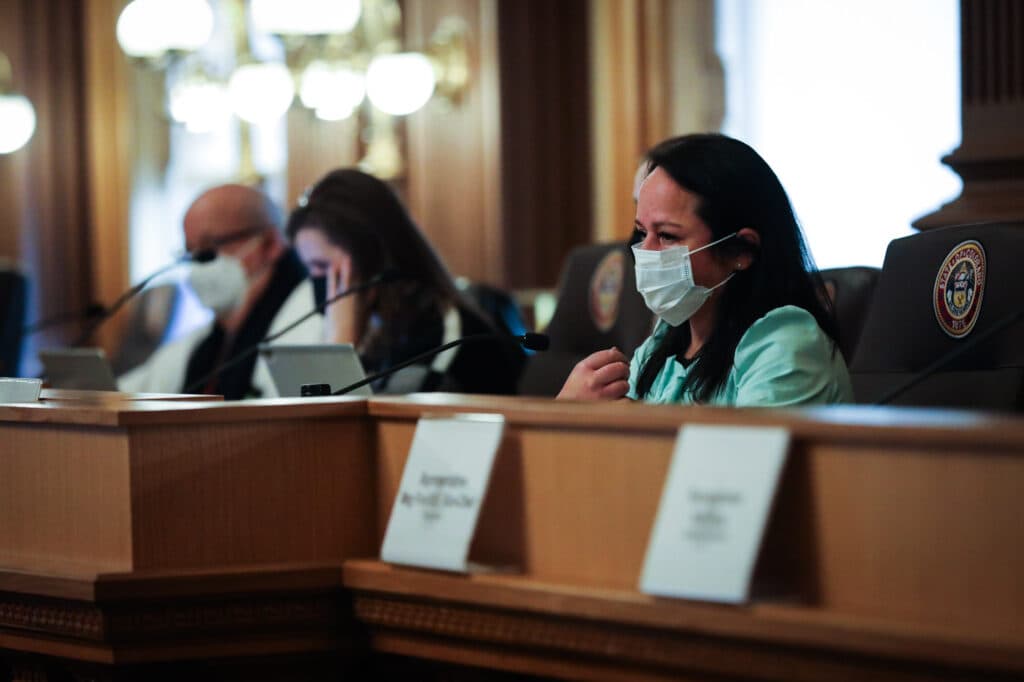
Other lawmakers support additional security for politicians, and are also familiar with harassment
One bill this session would go further than that. As introduced, SB-133 would allow statewide officials like Griswold to appeal State Patrol’s security decisions if they don’t agree. It would also include money to provide security for state lawmakers at public events and town halls and streamline the process to make those security requests.
“Making sure that you feel safe talking to the public is an essential part of our democracy,” said Democratic state Sen. Faith Winter, who’s sponsoring the bill along with Republican state Sen. Kevin Priola.
SB-133 hasn’t had a committee hearing yet and is expected to change throughout the process — Winter already plans to amend the bill to give all statewide officials up to 80 hours of security a week if they feel like they need it.
In general, Winter said she believes it’s important to set up better procedures for security and threat monitoring, in part to give people the confidence to go into public life.
“I recruit and train women to run for office, and more and more frequently all over the country women have been saying, ‘I don't know if I want to run because I don't feel safe. I don't feel safe for my family,’” Winter said.
Democratic state Rep. Leslie Herod knows firsthand what it can be like to live with those kinds of threats. She’s been one of the most outspoken voices at the capitol on police reform, which has led to ongoing backlash, including being called a "terrorist" by the Weld County Sheriff last year.
“I have had to change the way that I do certain things in my life. And I don't want to go too far into it, but my life has changed since I've received so many threats,” she said.

There are other proposals upping protections for civil servants
Before this year’s debate over in-person security for elected officials, state lawmakers were already moving to crack down on those who go after people in public life.
Last year, the legislature voted overwhelmingly to increase the penalty for threatening an elected official. And they’ve also made efforts to try to help lower profile civil servants too. A measure to increase penalties for threatening public health workers — or exposing their personal information to encourage others to harass them — became law with wide bipartisan support.
This year, lawmakers are working on a bill that would make it illegal to publish the personal information of election workers publicly — a practice known as doxxing — and allow those workers and their immediate family members to remove their private information from open records requests. It also increases the penalties for threats and intimidation.
Lawmakers in both political parties lament how the public discourse has deteriorated to the point where these measures are necessary. One called the entire security discussion “tragic” but added, “This is where we are.”



